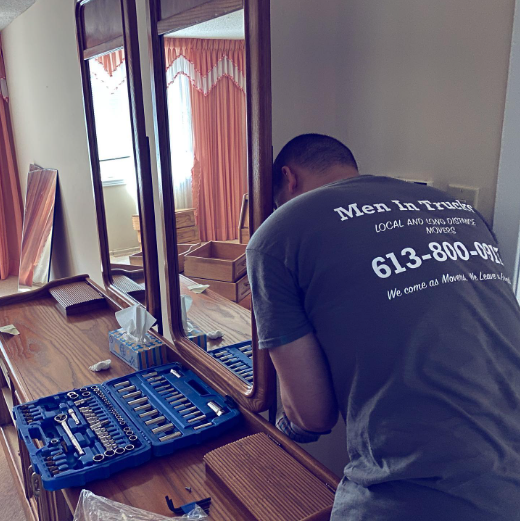Moving can be a complex and overwhelming process. At MIT Moving, we have compiled our top 10 moving tips to help ensure your relocation is as smooth and stress-free as possible. Whether you are moving locally or long-distance, these tips will provide valuable insights and strategies to make your move efficient and successful.
1. Plan Ahead and Create a Moving Checklist
Planning is crucial for a successful move. Start by creating a moving checklist that outlines all the tasks you need to complete before, during, and after the move. This checklist should include:
- Sorting and Decluttering: Go through your belongings and decide what to keep, donate, sell, or discard. This will reduce the amount of stuff you need to move and make packing easier.
- Hiring Movers: Research and book a reliable moving company like MIT Moving well in advance to secure your preferred moving date.
- Gathering Supplies: Collect all the necessary packing materials, such as boxes, tape, bubble wrap, and markers.
2. Declutter and Downsize
One of the best ways to make your move easier is to declutter and downsize your belongings. Moving is an excellent opportunity to get rid of items you no longer need or use. Consider donating, selling, or recycling items that are in good condition but no longer serve a purpose in your life. This will not only reduce the amount of stuff you need to move but also help you start fresh in your new home.
3. Label and Organize Your Boxes
Proper labeling and organization can make unpacking much easier. Use a color-coded labeling system to identify which boxes belong in which rooms. Clearly label each box with its contents and the room it should go to. This will help the movers place the boxes in the correct rooms and make it easier for you to find what you need when you start unpacking.
4. Pack an Essentials Box
An essentials box should contain all the items you will need immediately upon arrival at your new home. This might include:
- Toiletries (toothbrush, toothpaste, soap, shampoo)
- Medications
- A change of clothes
- Important documents (passports, IDs, moving contracts)
- Basic kitchen supplies (coffee maker, mugs, snacks)
- Chargers for electronics
Having an essentials box will save you from having to rummage through all your boxes to find what you need during the first few days in your new home.
5. Use Proper Packing Techniques
To ensure the safety of your belongings during the move, use proper packing techniques:
- Wrap fragile items in bubble wrap or packing paper to prevent breakage.
- Use sturdy boxes and do not overload them to avoid damage and make them easier to carry.
- Fill empty spaces in boxes with packing peanuts or crumpled paper to keep items from shifting.
- Label boxes containing fragile items with “Fragile” and “This Side Up” to ensure careful handling.
6. Notify Important Parties of Your Move
Make sure to notify important parties of your upcoming move. This includes:
- Utilities and Service Providers: Arrange for the disconnection and reconnection of utilities (electricity, water, gas, internet) at your old and new homes.
- Change of Address: Update your address with the post office, banks, insurance companies, and any other organizations that send you mail.
- Friends and Family: Let your friends and family know your new address and moving date.
7. Take Inventory of Your Belongings
Creating an inventory list of your belongings will help you keep track of everything during the move. This is especially important for long-distance moves. Document the contents of each box and take photos of valuable items. An inventory list will be useful for insurance purposes in case anything gets lost or damaged during the move.
8. Prepare Your Home for the Move
Before the movers arrive, prepare your home for the moving process:
- Clear pathways: Make sure there are clear pathways for the movers to navigate through your home without obstacles.
- Protect floors and walls: Use protective coverings to prevent damage to floors and walls during the move.
- Disassemble furniture: Disassemble large furniture items to make them easier to move and reduce the risk of damage.
9. Communicate with Your Movers
Maintaining open communication with your movers is essential for a smooth moving experience. Discuss any special instructions or concerns you have with the moving team. Ensure they have all the necessary information about your new home, such as parking restrictions, narrow streets, or specific delivery times. Clear communication will help prevent misunderstandings and ensure that your move goes as planned.
10. Stay Organized on Moving Day
On moving day, stay organized and keep a calm demeanor. Here are some tips to help you stay on top of things:
- Double-check your checklist: Go through your moving checklist to make sure you haven’t missed any important tasks.
- Supervise the movers: Be present to oversee the loading and unloading of your belongings.
- Keep important documents handy: Have all your moving-related documents, such as contracts and inventory lists, easily accessible.
- Do a final walkthrough: Before leaving your old home, do a final walkthrough to ensure nothing is left behind.
Bonus Tips for a Stress-Free Move

Prepare Your New Home Before Moving In
If possible, prepare your new home before moving in. This can include:
- Cleaning: Give your new home a thorough cleaning before your belongings arrive.
- Repairs and Maintenance: Take care of any necessary repairs or maintenance tasks before moving in.
- Setting Up Utilities: Ensure that all utilities are connected and functioning properly.
Hire Professional Packers
If you have a busy schedule or want to ensure your belongings are packed securely, consider hiring professional packers. At MIT Moving, we offer expert packing services to save you time and ensure your items are packed with care.
Take Care of Yourself
Moving can be physically and emotionally exhausting. Make sure to take care of yourself during the process:
- Stay hydrated: Drink plenty of water to stay hydrated, especially if you’re doing a lot of physical activity.
- Take breaks: Take regular breaks to rest and recharge.
- Ask for help: Don’t be afraid to ask friends or family for help with packing and moving tasks.






